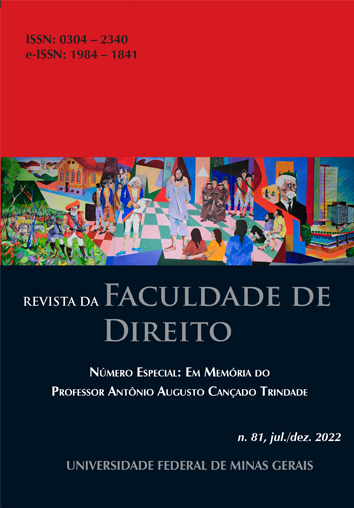THE CANÇADO TRINDADE’S CONTRIBUTION TO THE INTERPRETATION OF AMNESTY LAWS IN THE INTERAMERICAN SYSTEM OF HUMAN RIGHTS: AN ANALYSIS BASED IN HERZOG’S CASE - DOI: 10.12818/P.0304-2340.2022v81p299
DOI:
https://doi.org/10.12818/P.0304-2340.2022v81p299Abstract
Brazil was condemned by the Inter-American Court on Human Rights, on the case of Vladimir Herzog. The sentence is emblematic because of the seriousness of the violations perpetrated against Herzog, which imply an example of the Brazilian State’s failure to perform justice for the crimes committed by public and private agents in the dictatorship Military. Herzog vs. Brazil, will provide a new opportunity for the country to confront challenges getting in the way of providing justice to victims of crimes committed by the military dictatorship. The article explores how Brazil implements the decisions of the Inter-American System of Human Rights and demonstrates, through the jurisprudence of the Inter-American Court, the influence of jurist Cançado Trindade in the interpretation of amnesty laws. The main objective is to reflect on the contradiction of the current Human Rights policy in Brazil due to the lack of implementation of international laws that seek to consolidate these rights in the country. The study concludes that there is a lack of implementation of international laws that aim to improve mechanisms for the protection of human rights in Brazil. The methodology adopted is inductive analysis, through the technique of bibliographical and documental research.
Downloads
Published
Issue
Section
License
Copyright (c) 2023 REVISTA DA FACULDADE DE DIREITO DA UFMG

This work is licensed under a Creative Commons Attribution-NonCommercial 4.0 International License.



